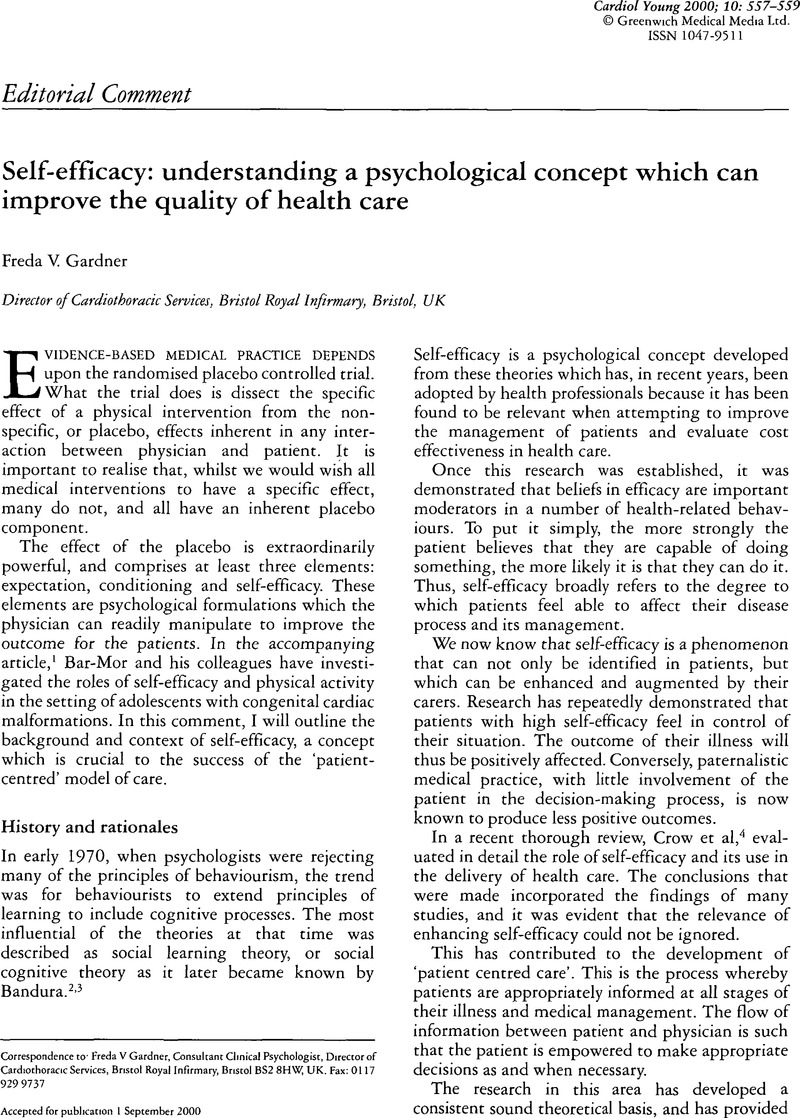No CrossRef data available.
Article contents
Self-efficacy: understanding a psychological concept which can improve the quality of health care
Published online by Cambridge University Press: 19 August 2008
Abstract
An abstract is not available for this content so a preview has been provided. As you have access to this content, a full PDF is available via the ‘Save PDF’ action button.

- Type
- Editorial Comments
- Information
- Copyright
- Copyright © Cambridge University Press 2000
References
1. Bar-Mor, G, Bar-Tal, Y, Krulik, T, Zeevi, B. Self-efficacy and physical activity in adolescents with trivial, mild, or moderate congenital cardiac malformations. Cardiol Young 2000; 10: 561–566CrossRefGoogle ScholarPubMed
2. Bandura, A. Social Leanring Theory. Prentice-Hall, Englewood Chffs, NJ, 1977, pp 58–93.Google Scholar
4. Crow, R, Gage, H, Hampson, S, Hart, J, Kimber, A, Thomas, H. The role of expectancies in the placebo effect and their use and delivery of health care: a systematic review. Health Technol Assess 1999;3 (3).CrossRefGoogle ScholarPubMed




